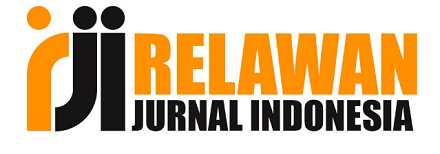DAMPAK MEDIASI KEPUASAN PELANGGAN PADA PENGARUH NILAI UTILITARIAN DAN NILAI HEDONIS TERHADAP WORD OF MOUTH (Studi Pada Onlineshop NINA Fashion)
DOI:
https://doi.org/10.33474/jimmu.v5i2.8849Abstract
Â
Penelitian ini bertujuan untuk menganalisis dampak mediasi kepuasan pelanggan pada pengaruh nilai utilitarian dan nilai hedonis terhadap word of mouth (Studi Pada Onlineshop NINA FASHION). Penelitian ini dilakukan pada pengguna facebook (akun Nina Fashion ) yang melakukan transaksi online (facebook commerce).
Metode penelitian ini adalah merupakan penelitian sosial dengan paradigma kuantitatif. Jenis penelitian ini adalah eksplanatori (explanatory research). Populasi dalam penelitian ini adalah semua konsumen yang pernah membeli produk Nina fashion dengan minimal satu kali transaksi pembelian atau lebih, yang berjumlah 350 orang, dan sampel yang digunakan dalam penelitian ini sebanyak 78 orang, dengan alat analisis yang digunakan adalah Structure Equation Model (SEM).
           Hasil penelitian ini mengungkapkan bahwa Pengaruh variabel Nilai Utilitarian (X1), Nilai Hedonis (X2) terhadap variabel Kepuasan Pelanggan (Z), berpengaruh positif dan signifikan dengan nilai estimasi sebesar 20,4% dan 61,4%. Pengaruh variabel Nilai Utilitarian (X1), Nilai Hedonis (X2) terhadap variabel Word of Mouth (Y) berpengaruh positif dan signifikan dengan nilai estimasi sebesar 22,2% dan 38,2%. Pengaruh variabel Kepuasan Pelanggan (Z) terhadap variabel Word of Mouth (Y) berpengaruh positif dan signifikan dengan nilai estimasi sebesar 36,1%. Pengaruh tidak langsung Nilai Utilitarian (X1) terhadap variabel Word of Mouth (Y) melalui variabel Kepuasan Pelanggan (Z) tidak signifikan dan positif dengan nilai estimasi sebesar 7,4%. Pengaruh tidak langsung Nilai Hedonis (X2) terhadap variabel Word of Mouth (Y) melalui variabel Kepuasan Pelanggan (Z) signifikan dan positif dengan nilai estimasi sebesar 22,2%.
Kata Kunci: Online Shop, Utilitarian, Hedonis, Trust, WOM
Â
This research method is a social research with a quantitative paradigm. This type of research is explanatory (explanatory research). The population in this study were all consumers who had bought Nina fashion products with a minimum of one or more purchase transactions, totaling 350 people, and the sample used in this study were 78 people, with the analytical tool used was the Structure Equation Model (SEM) .
The results of this study revealed that the influence of Utilitarian Value (X1), Hedonist (X2) variables on Customer Satisfaction (Z), had a positive and significant effect with estimated values of 20.4% and 61.4%. The influence of Utilitarian Value (X1), Hedonic Value (X2) variables on the Word of Mouth (Y) variable has a positive and significant effect with estimated values of 22.2% and 38.2%. The influence of the variable Customer Satisfaction (Z) on the variable Word of Mouth (Y) has a positive and significant effect with an estimated value of 36.1%. The indirect effect of Utilitarian Value (X1) on the variable Word of Mouth (Y) through the Customer Satisfaction variable (Z) is not significant and positive with an estimated value of 7.4%. The indirect effect of the Hedonic Value (X2) on the Word of Mouth (Y) variable through the Customer Satisfaction variable (Z) is significant and positive with an estimated value of 22.2%.
Keywords: Online Shop, Utilitarian, Hedonis, Trust, WOM
References
Arikunto, Suharsimi, 2006. Prosedur Penelitian suatu pendekatan praktik. Jakarta: PT. Adi Mahasatya.
Andy, Sernovitz. 2009. Word of Mouth Marketing:How Smart Companies Get People Talking (Revised Edition). New York : Kaplan Publishing.
Brown, J.J., Reingen, P.H., 1987. Social ties and word-of-mouth referral behavior. Journal of Consumer Research 14, 350–362.
Brown, T. J., Barry, T. E., Dacin, P. A., & Gunst, R. F. (2005). Spreading the Word: Investigating Antecedents of Consumers’ Positive Word-of-Mouth Intentions and Behaviors in a Retailing Context. Journal of the Academy of Marketing Science, 33(2), 123–138.
Babin, B.J., Darden, W.R., and Grip n, M., 1994,Work and/or Fun: Measuring Hedonic andUtilitarian Shopping Value. Journal of Consumer Research, 20 (March): 644-656.
Babin, B.J. and Darden, W.R., 1995, Consumer Self-Regulation in a Retail Environment. Journal of Retailing, 71. 47-70.
Babin, Barry J., and Jill S Attaway. 2000. “Hedonic and Utilitarisn Shopping Goals: The Online Experience.†Atmhospheric as a tool for Creating Value and Gaining Share of Custome.†Journal of Business Research 309-314.
Byrne BM (2013) Structural equation modeling with AMOS: Basic concepts, applications, and programming. Routledge
Christoper, M., Payne, A. And Ballantyne, D. (1991) Relationship Marketing: Bringing Quality, Customer Service and Marketing Together. Oxford: Butterworth Heinemann.












